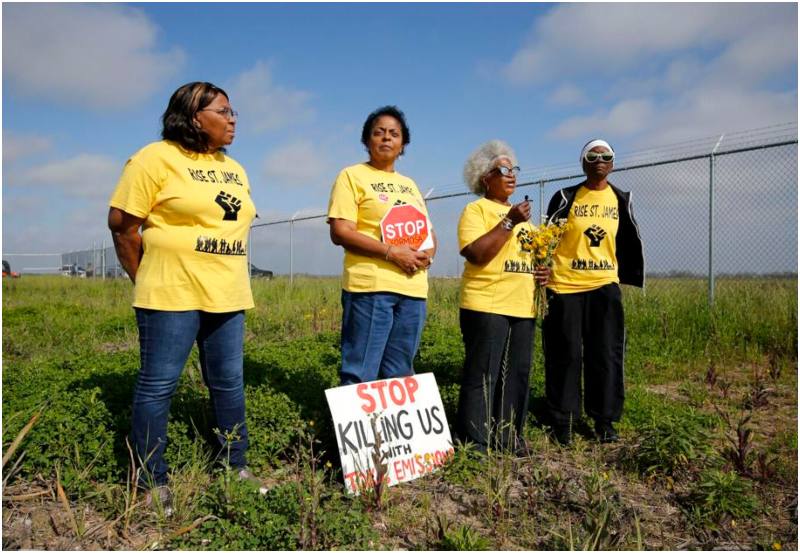The U.S. Court of Appeals for the Fifth Circuit heard oral arguments on Monday in a civil rights lawsuit accusing St. James Parish, Louisiana, of implementing discriminatory land-use policies that have disproportionately harmed majority-Black neighborhoods.
Plaintiffs Inclusive Louisiana, Mount Triumph Baptist Church, and RISE St. James allege that the parish’s 2014 land-use plan “effectively codified” racist practices, diverting industrial development and its resulting pollution away from majority-white communities and into majority-Black areas.
St. James Parish, located outside of New Orleans, is at the center of these accusations, with claims that its land-use decisions have resulted in significant environmental damage, including the release of hazardous toxins that negatively impact Black residents.
The plaintiffs argue that these policies violate their rights under the 13th and 14th Amendments to the U.S. Constitution, as well as the Religious Land Use and Institutionalized Persons Act (RLUIPA) and the Louisiana Constitution.
History of the Case and Initial Dismissal
The original lawsuit, filed by the plaintiffs, contends that the 2014 land-use plan was designed to shield majority-white communities from industrial development, while leaving Black communities vulnerable to increased pollution.
The lawsuit was dismissed in November 2023 by a district court judge on procedural grounds, including a lack of standing and the expiration of the statute of limitations for some claims.
The judge also expressed concerns that the plaintiffs failed to sufficiently demonstrate a direct link between the land-use plan and the harms they allege.
Despite this setback, the plaintiffs appealed the decision, and the Fifth Circuit is now giving them another opportunity to present their case.
The defendants, representing St. James Parish, maintain that the plaintiffs have not provided enough facts to establish standing and have argued that the lawsuit is based on “inflammatory rhetoric” rather than substantive legal claims.
The government’s defense counters that references to the history of slavery and its alleged connection to current land-use policies are exaggerated and irrelevant.
Alleged Constitutional Violations
The plaintiffs’ 13th Amendment claim asserts that the parish’s land-use system “operates as a badge or incident of slavery,” suggesting that the racial disparities in industrial development are a continuation of discriminatory practices rooted in the region’s history of enslavement.
Under the 14th Amendment, they argue that St. James Parish’s land-use decisions reflect discriminatory intent, resulting in unequal treatment of Black residents and violating their due process rights.
In addition to federal constitutional claims, the lawsuit alleges that the parish’s actions violate RLUIPA by interfering with the plaintiffs’ ability to practice their religion in a safe environment, and that these actions breach the Louisiana Constitution’s guarantees of equality and protection.
Environmental Racism and Global Attention
The case has drawn attention to the issue of environmental racism, particularly in Louisiana’s “Cancer Alley,” a stretch of land along the Mississippi River known for its high concentration of industrial facilities and disproportionate health impacts on Black communities.
In 2021, United Nations human rights experts called attention to the environmental pollution affecting St. James Parish residents, noting that many of the victims are African American descendants of enslaved people. The UN experts urged U.S. officials to take action.
In 2023, the U.S. Environmental Protection Agency (EPA) also issued a report addressing the environmental challenges facing communities of color, including those in St. James Parish. The Biden administration has made environmental justice a policy priority, focusing on the unequal impact of pollution on marginalized communities.
With the Fifth Circuit now hearing oral arguments, the plaintiffs hope for a new ruling that could allow the case to proceed, bringing much-needed attention to their claims of racial discrimination and environmental injustice.

